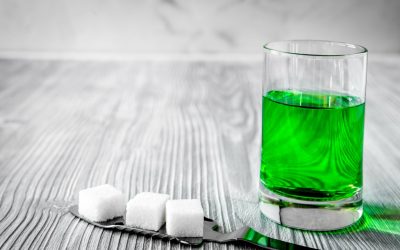These triggers can be difficult to recognize and can completely disrupt a recovery if they lead to relapse. Recognition and avoidance of potential triggers will be a key part of any recovery process. This involves being mindful of one’s surroundings and understanding how different elements in the environment might affect their state of mind and emotional balance. Our Triggers worksheet will introduce your clients to triggers with a simple definition and tips, while guiding them through the process of identifying their own triggers.
Managing Internal Triggers
External triggers are factors outside of an individual that may provoke a craving or desire to return to substance use. Developing an understanding of these external triggers and learning effective strategies to cope with them is essential in preventing https://thetennesseedigest.com/top-5-advantages-of-staying-in-a-sober-living-house/ relapses. It requires introspection, patience, and, often, the guidance of a mental health professional. However, the effort invested in understanding and managing these triggers can be a transformative part of an individual’s recovery journey.
Self-Awareness: A Key to Addressing Internal Triggers
As a safe space for study and practice, The Retreat empowers those who seek contented sobriety. When triggered, emotions like anger, guilt, and irritability arise along with a decline in self-esteem, paving the way for various unhealthy behaviors. Some might even be traumatizing enough to provoke harmful coping mechanisms, including self-harm, harming others, and substance abuse as well.

Emotional Relapse
- There are other triggers such as sights, smells, conflict, aggression, news stories, books, and memories which can cause disruption in our lives.
- Such triggers are sometimes apparent, but they can also be subtle and more challenging to identify.
- Therapists in rehab facilities can offer individuals tools and ideas that can be helpful while battling troubling emotions and compulsions.
- Sometimes, it’s necessary to distance yourself from friends who still engage in substance use to avoid being tempted or triggered by their behaviors.
Internal triggers can evoke a wide array of emotions, including stress, anxiety, depression, and even trauma, which can increase the risk of relapse. Drugs and alcohol are often used to self-medicate mental illness and mask negative emotions. The correlation between mental health and addiction Sober House has been studied extensively, with addiction treatment facilities now offering dual diagnosis programs. When a dual diagnosis is apparent, mental health and addiction specialists must address both the addiction and mental illness in order to ensure a long, healthy and happy recovery.
- They might include certain styles of music or specific songs, or the taste of a drug.
- Although external ones are often powerful, many times they are avoidable.
- Addiction and substance use disorder affects over 17% of the American population.
- Long-term drug use creates an association in the brain between daily routines and drug experiences.
- If a lapse or relapse occurs, the patient should be encouraged and guided by the clinician to explore the relapse itself and the circumstances surrounding it, including any early warning signs of relapse.
Start your recovery with Massachusetts Center for Addiction
- It is essential to keep in mind that while many triggers result from negative events or experiences, positive events or experiences can also trigger a relapse.
- It can stem from common sources like work, personal relationships, financial concerns, and self-imposed expectations.
- After identifying triggers, your clients will be prompted to develop strategies to either avoid or cope with their triggers.
